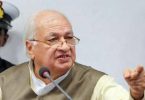To understand the controversy around Twitter’s decision to lock Congress leader Rahul Gandhi’s account — he had posted a picture which revealed the identity of relatives of a minor rape victim, an offence under Indian law — it is important to go back to first principles. As this newspaper has consistently argued, Twitter is not an intermediary. It is a media company. Like other social media companies such as Facebook, by projecting itself as an intermediary, Twitter sought to distance itself from any content posted on the platform. But this was never a tenable position, for it sought to monopolise the benefits of being a media company while seeking to escape the legal obligations that came with it. In recent times, Twitter — using a range of tools — began exercising control over tweets. This made it even clearer that the platform was not just a platform; it was a media company which exercised judgment over what was legally allowed and what was not, what was manipulated and factually incorrect information and what was not, what constitutes hate speech and what does not. There were some who applauded Twitter’s editorial decisions and some who critiqued it, but the bottomline was this — the pretence of being an intermediary was over.
This is where the politics comes in. In India, both the government and its critics found the platform a useful tool to communicate messages. As Twitter began to flag legal and factual issues vis-a-vis the tweets of government ministers and ruling party spokespersons (for instance, Sambit Patra’s tweet on an alleged Congress “toolkit” was flagged as manipulated media), the Congress celebrated, egging on the social media company to persist with its approach. The situation is now the reverse. As Twitter cracked down on Mr Gandhi’s account (and thousands of other Congress accounts which reposted the same picture revealing the identity of family members of the victim), the government is smiling and Mr Gandhi is accusing a foreign company of interfering in Indian politics and democracy.
And that is why, irrespective of what serves one’s interests at a particular point, India’s political class needs to evolve a broad framework consensually on social media companies. Hold them legally liable, just as mainstream media organisations are liable for their content, but preserve free speech. The government and the Opposition need to learn that complaining about each decision of a foreign company won’t help when they are willing to use the same company to score points against each other.







